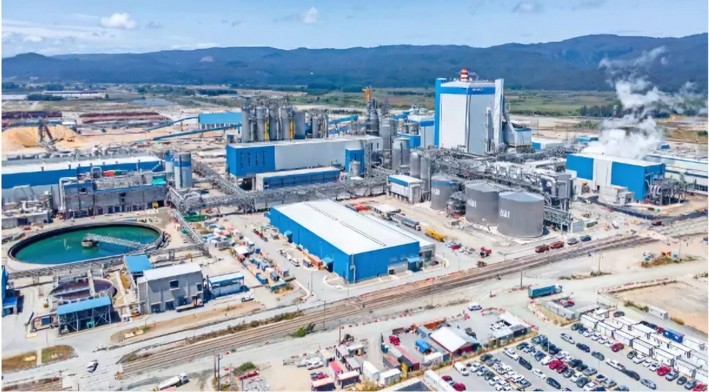- A pulp plant in Mato Grosso do Sul is the most significant initiative currently underway by Arauco.
The Angelini Group is progressing with forestry and timber projects totaling approximately US$3.3 billion in Brazil, Mexico, and Chile, particularly in the Ñuble Region.
This was stated by Eduardo Navarro, General Manager of Empresas Copec, in a corporate video discussing the group's second-quarter results this year.
Navarro highlighted the progress of Arauco's plan in Mato Grosso do Sul, Brazil, where it is considering building a pulp plant with an annual capacity of 2.5 million tons, called the Sucuriú project, requiring an investment of US$3 billion. The company has indicated that construction could begin in 2025.
The executive stated that this initiative "could transform Arauco's operational scale. It could equate to a 50% increase in its pulp production capacity."
He added that Brazilian authorities "have welcomed Arauco's team very positively, with stringent regulations for the project but also with the best willingness to expedite permits."
The Chilean forestry company owns about 70% of the hectares needed to develop plantations that will supply wood to the pulp plant in Brazil.
"Arauco's board has approved funds to proceed with what are known as early works. This project excites us greatly because it could solidify Arauco as one of the world's leading pulp companies," he said.
Additionally, Arauco is advancing the Zitácuaro project in Mexico, a US$200 million MDF board plant that would double its capacity. "The project is progressing as planned and should begin operations in the second half of 2025," he noted.
Eduardo Navarro recalled that recently (in July) in Chile, Arauco announced the development of an OSB panel line, "a material highly demanded by the construction industry for its versatility and efficiency." The project will be located in the Ñuble Region and involves a US$92 million investment.
In the Biobío Region, Arauco operates its largest and newest pulp plant, MAPA, which is running at an increased scale.
Source: subscription edition ofEl Mercurio







Comentarios (0)
No hay comentarios aún. ¡Sé el primero en comentar!
Deja un comentario